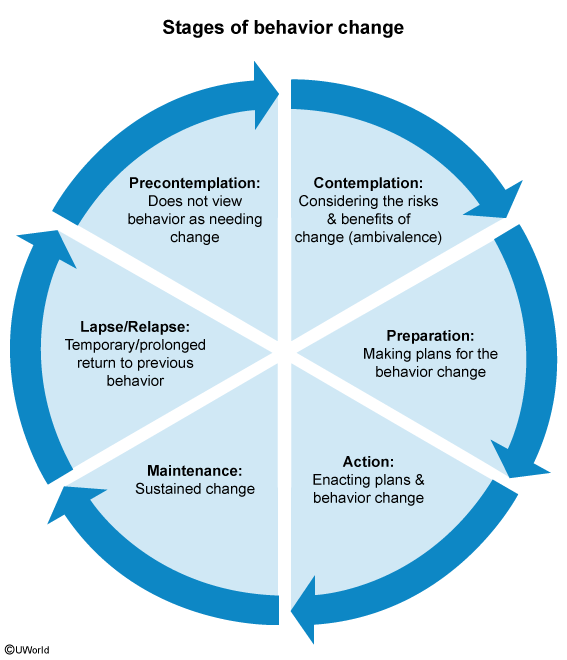Stages Of Behavior Change
Article Sections
Introduction
The stages of behavior change, as conceptualized by the transtheoretical model (TTM), which describes the process individuals undergo when modifying behavior and gauges their readiness for change. This model can be applied to multiple habits and health-related decisions, including smoking cessation, exercise frequency, and medication adherence. Identifying a patient's readiness for change allows for strategic, patient-centered interventions to decrease ambivalence and promote self-efficacy.
Transtheoretical model
The transtheoretical model (TTM) comprises the following stages (Figure 1):
- Precontemplation: Views behavior as not needing change.
- Contemplation: Considers the risks and benefits of change (ambivalence).
- Preparation: Makes plans for the behavior change.
- Action: Enacts plans and behavior change.
- Maintenance: Sustains behavior changes.
Another component of the TTM includes relapse, which occurs if a patient reverts back to the problematic behavior after making a change (ie, during the action, maintenance phases).
Continue Learning with UWorld
Get the full Stages Of Behavior Change article plus rich visuals, real-world cases, and in-depth insights from medical experts, all available through the UWorld Medical Library.
Unlock Full AccessFigures
